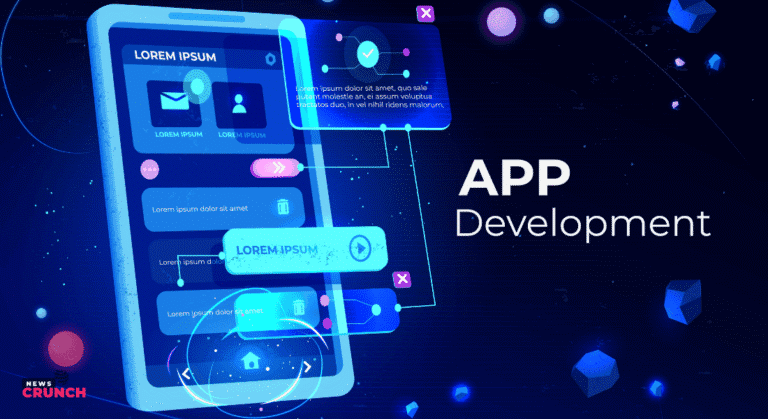
Introduction
Silicon Valley has long been the global symbol of innovation. From the personal computer revolution in the 1980s to the dot-com explosion of the 1990s and the rise of social media in the 2000s, this region has been at the center of every major technological shift. Investors, entrepreneurs, and dreamers have looked to the Valley not just as a place where businesses grow but as the engine of global progress. Now, the conversation has turned to artificial intelligence. With a flood of new startups promising to reshape industries through AI, the question arises: is Silicon Valley on the brink of another historic tech boom, or is the hype running ahead of reality?
Silicon Valley’s Legacy: From Dot-Com to AI Revolution
The story of Silicon Valley is one of constant reinvention. The early decades were dominated by hardware pioneers who laid the foundation of the computing age. Later, internet companies took over, creating a digital economy that still defines modern life. Social media platforms further cemented the Valley’s role as a cultural force. Each wave created new billionaires, reshaped industries, and shifted the way people lived and worked. Today, artificial intelligence is being positioned as the next great wave. Just as the internet once connected the world, AI promises to make technology more intelligent, adaptive, and capable of solving complex problems at scale.
The Surge of AI Startups: A New Innovation Era
Walk through the offices of San Francisco or Palo Alto, and you will see a new breed of startup teams working on AI solutions. These are not limited to chat bots or language models. Some are developing diagnostic tools that can help doctors detect diseases earlier. Others are building smarter logistics systems that cut down delivery times and costs. Educational platforms are using AI to personalize learning, while financial firms are creating predictive models that improve investment strategies. The diversity of these startups highlights that AI is not a niche trend but a fundamental shift in how technology is applied across nearly every sector.
Investor Confidence: Why AI Is the Hottest Bet
Money has always fueled Silicon Valley, and venture capital firms are again at the story’s center. In the last few years, billions of dollars have been invested in AI startups. Investors are hugely interested in AI because they see it not as a fad but as a core driver of the future economy. The comparison with the early days of the internet is frequent. Just as websites once seemed experimental before becoming indispensable, today’s AI tools may feel new but could soon become part of daily life. For investors, the risk of missing out on the next Google or Facebook is far greater than the risk of backing a startup that fails.
How AI Is Disrupting Traditional Industries
Artificial intelligence is not confined to Silicon Valley boardrooms. Its influence is already spreading into traditional industries. Healthcare is one of the biggest beneficiaries, with AI used to analyze scans, predict patient risks, and even assist in drug discovery. Self-driving technology continues to evolve in transportation, promising safer and more efficient mobility. The financial sector is deploying AI for fraud detection and investment forecasting. Even in creative fields such as film, music, and graphic design, AI tools are beginning to play a role. This level of disruption shows why startups are so attractive. They are not just creating new apps but redefining how industries function.
| Aspect / Feature | Traditional Tech Startups | AI Startups in Silicon Valley |
| Core Focus | Apps, software, e-commerce, social media | Artificial intelligence, automation, and machine learning |
| Investor Interest | Strong but slowing due to saturation | Extremely high, seen as the next frontier |
| Speed of Innovation | Moderate, customer-driven | Rapid, research-driven, and experimental |
| Resource Needs | Moderate capital and infrastructure | High data, computing power, and skilled talent |
| Competition Level | Mostly U.S.-based | Intense global competition (China, Europe, Canada) |
| Main Challenges | Market saturation, user retention | Privacy issues, ethics, bias, and high costs |
| Industry Impact | Incremental changes | Transformational impact across multiple industries |
Challenges That Could Slow the AI Startup Boom
The excitement surrounding AI is undeniable, but the path forward is not without barriers. Many startups struggle to translate promising research into scalable products. Building and training AI models requires massive amounts of data and computing power, both costly. Ethical concerns add another layer of complexity. Questions around data privacy, algorithmic bias, and the potential misuse of AI for surveillance or disinformation are serious issues that cannot be ignored. Furthermore, the market is crowded. Hundreds of startups compete in similar spaces, and not all will survive. History has shown that Silicon Valley produces winners and leaves behind failed ventures.
Global Competition: Can Silicon Valley Keep Its Edge?
Unlike past booms, Silicon Valley does not monopolize artificial intelligence. Countries such as China, India, Canada, and the United Kingdom are investing heavily in AI research and startups. Beijing is positioning itself as a global AI powerhouse, while Toronto has emerged as a leading hub for machine learning. London is attracting both startups and investors with its strong academic base. This global spread of innovation creates real competition. While Silicon Valley still enjoys a strong reputation and ecosystem, it must work harder than ever to maintain its dominance. The next tech boom may no longer be confined to a single region.

The Talent Crunch: Race for AI Experts
Even with money and ideas, no startup can succeed without talent. Silicon Valley is experiencing fierce competition for AI experts. Engineers and data scientists specializing in machine learning are in short supply worldwide. Tech giants like Google, Apple, and Microsoft offer lucrative salaries that smaller startups cannot match. This imbalance makes it difficult for new companies to attract the expertise they need to scale. Universities are producing more graduates in the field, but demand still far outpaces supply. The race for talent has become one of the defining challenges for the future of AI in Silicon Valley.
The Road Ahead: Is Another Tech Boom Coming?
The ingredients for a new boom are undoubtedly present in the landscape. There is no shortage of innovation, investor money is flowing, and the potential applications of AI are enormous. At the same time, the challenges are significant. Without solutions to scalability, ethics, and global competition, the dream of an AI-driven boom could falter. The situation mirrors past chapters in Silicon Valley’s history. The dot-com bubble of the late 1990s was filled with enthusiasm, but it ended in a crash that took years to recover from. Whether AI startups deliver sustainable growth or fall victim to over-hype will determine if this becomes the next golden age.
Final Thought
Silicon Valley has thrived on reinvention, and artificial intelligence represents its boldest reinvention. The possibilities are vast, from revolutionizing industries to improving everyday life. The excitement is real, but so are the risks. The ability to balance innovation with responsibility will separate lasting companies from short-lived experiments. If AI startups can prove their worth beyond hype, Silicon Valley may once again lead the world into a new era of prosperity. The next chapter of the Valley’s story is being written right now, and the world is watching closely to see if AI will indeed spark the next great tech boom.
FAQs
Q1. Why is Silicon Valley considered the hub for AI startups?
Silicon Valley offers access to top universities and investors and a strong culture of innovation, making it the most attractive environment for AI startups to grow.
Q2. Are AI startups only focused on tech-related products?
No. AI startups are active in healthcare, finance, logistics, transportation, education, and creative industries like design and film-making.
Q3. What are the biggest challenges AI startups face today?
The main challenges are high data and computing power costs, a shortage of AI experts, ethical concerns about privacy and bias, and intense global competition.
Q4. How much investor interest is there in AI startups?
Investor interest is at record levels, with billions of dollars being poured into AI companies yearly because they are seen as the foundation of the next tech boom.
Q5. Can Silicon Valley maintain its dominance in AI innovation?
While Silicon Valley still leads, regions like China, London, and Toronto are rapidly catching up, creating real global competition.
Q6. How is AI disrupting traditional industries?
AI is transforming healthcare with better diagnostics, finance with predictive modeling, transportation with self-driving technology, and education with personalized learning tools.
Q7. Could AI startups trigger another bubble like the dot-com era?
Yes, it’s possible. While AI has enormous potential, over-hype and unsustainable business models could create risks similar to the dot-com bubble if companies fail to deliver real value.







